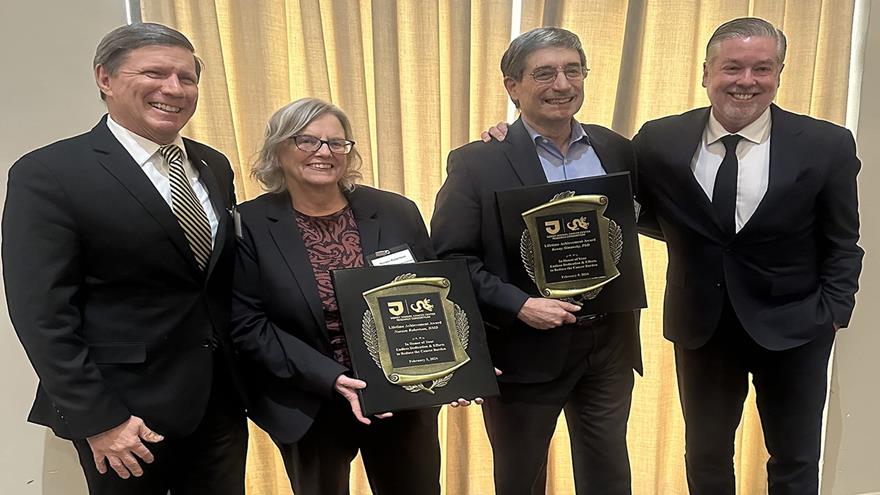Music Therapy Offers Creative Outlet for Youth in Detention Center

- Bolstered by Research Consortium with Drexel, Jefferson’s Sidney Kimmel Cancer Center Earns NCI Comprehensive Cancer Center Designation
- Ribbon-Cutting Ceremony Marks Official Unveiling of Drexel Station at 30th Street
- Through Connections and Community, Drexel Course Helps Launch Computer Lab in Tanzania
- Drexel’s Pearlstein Gallery Offers Spring Exhibitions Centered on the Healing Properties of Art and Creative Works
Through a long-standing partnership with the Delaware County Juvenile Detention Center, graduate students in Drexel’s music therapy and counseling program are helping to bring joy, a creative outlet and — most importantly — music, to an adolescent population whose current circumstances are uncertain.
Those uncertain circumstances often create a great deal of anxiety among the adolescents there.
“It’s a short term detention center, so kids are awaiting judgment,” said Flossie Ierardi, director of music therapy programs for the Department of Creative Arts Therapies. “They are waiting to find out if they are going to go home, or if they are going to have to go to a long-term treatment facility or, in some cases, to a detention facility. There is a lot of anxiety around that. Even though these kids have been engaging in negative behaviors, they are very anxious, even upset or depressed about it.”
With an established need, the lead teacher from the Detention Center sought to address it. A decade ago, together, with Ierardi, they established a volunteer opportunity, which brought groups of three music therapy and counseling students to the Delaware County Juvenile Detention Center three times a summer to lead therapeutic music groups.
“The goal was to alleviate the anxiety even for a short period of time to help kids get back to a point where they can cope a little better with the experience that they’re having now,” said Ierardi.
For Drexel’s students, the program offers a unique clinical experience with almost immediate gratification. K.D. McLaughlin, who just completed her first year in the two-year program, participated in the most recent visit July 3, 2015. Tasked with providing a distraction from the holiday weekend ahead that the kids would be spending within the facility, McLaughlin saw a group of adolescents who started the session closed off completely open up with laughter and joking by the end of the 45-minute music session.
“It was great to see their reactions. Music, especially with that population, is such a huge part of their lives,” she said. “When you bring it into that context and they get to show what they can do on top of learning new things, you could see the light on their faces.”
The session provided opportunities to learn drumming patterns, play a xylophone (an instrument many hadn’t ever tried before) and participate in songs like Bob Marley’s “Three Little Birds.” There were also opportunities for improvisation to encourage both self-expression and active listening.
It was also important to recreate songs and music from the adolescents’ preferred genre.
“Many times we would recreate a lot of the music that’s within the hip-hop genre and really use that to validate where they’re coming from and draw out their potential and strengths,” said Matt Page, who just completed his graduate coursework.
Page opted for a more in-depth experience — a term-long clinical practicum at the detention center during the 2013-14 academic year on top of participating in the summer service opportunity.
“It’s incredible how they open up after 15 minutes or so of drumming, improvisation and listening to their preferred music,” Page said.
The detention center has now become a consistent clinical practicum site for music therapy students.
That’s not to say every visit is as easy, or as productive.
“Sometimes it can be challenging,” said Ierardi. “Some days they’re angry that they’re there, and that’s understandable. Some days they’re depressed that they’re there, and that’s understandable, too.”
But the goal is to provide a healthy outlet for expression, especially on those days.
“We don’t talk about what brings them to the facility, we talk about what makes them so resilient and what can get them through the toughest of times,” said Page.
In This Article
Drexel News is produced by
University Marketing and Communications.
